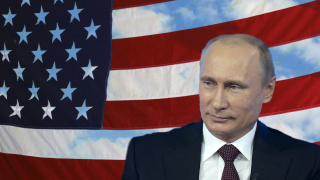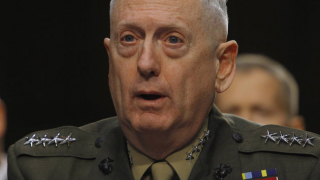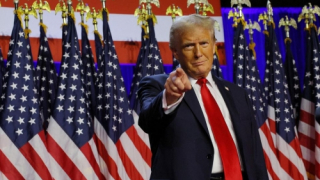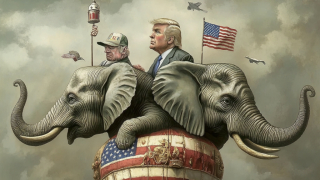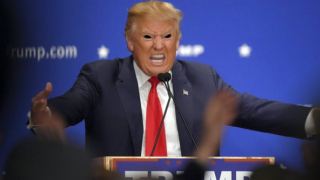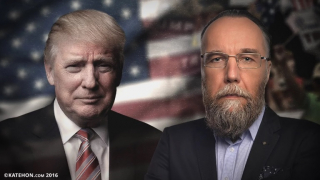Voir aussi
27.10.2016
"Parmi les problèmes mythiques, imaginaires, on trouve l'hystérie, je ne peux pas dire autrement, qui s'est développée aux Etats-Unis concernant l'...
02.12.2016
Le président élu des Etats-Unis Donald Trump a nommé le général de marine en retraite James N. Mattis, surnommé « Mad Dog » après les opérations dans...
13.11.2024
Je n'ai aucune sympathie, aucun sentiment, pour la personne Donald J. Trump, pour ce qu'il a représenté (un capitalisme vorace, escroc, non régulé,...
26.09.2016
"je souhaite la victoire d'Hillary Clinton" a-t-il lâché, interrogé ce matin sur Europe 1, alors qu'il avait déjà affirmé récemment qu'il était ami...
19.12.2016
Les élections présidentielles directes se tiennent aujourd’hui aux États-Unis. 538 électeurs de tous les 50 états d'Amérique du Nord se réunissent...
13.09.2024
Essayons d'appliquer la topologie de Lacan aux élections américaines. Rappelons le modèle de base de Lacan. Il peut être représenté sous la forme de...
07.07.2016
La procureure générale des Etats-Unis, Loretta Lynch, a officiellement déclaré qu’Hillary Clinton ne sera pas poursuivie pour avoir utilisé des...
09.04.2017
Ne vous laissez pas illusionner par les jeux diplomatiques et le suivisme des grands médias. Ce qui s’est passé ce matin en Syrie n’a aucun rapport...
29.07.2016
«C'est avec humilité, détermination et une confiance sans limites dans la promesse de l'Amérique que j'accepte votre nomination pour la présidence...
Politique / La loi travail : le calvaire n’en finit pas
La loi El Khomri à l’épreuve de l’Assemblée ! L’examen du texte du ministre du Travail a...
02.11.2016
En quelques heures, l’élection d’Hillary Clinton dans un fauteuil, celui de première présidente des Etats Unis d’Amérique, a tourné au chemin de...
11.11.2016
Ces jours-ci, il est à peine possible de discuter sérieusement n’importe quel sujet à part la victoire magnifique de Donald Trump et la défaite...


